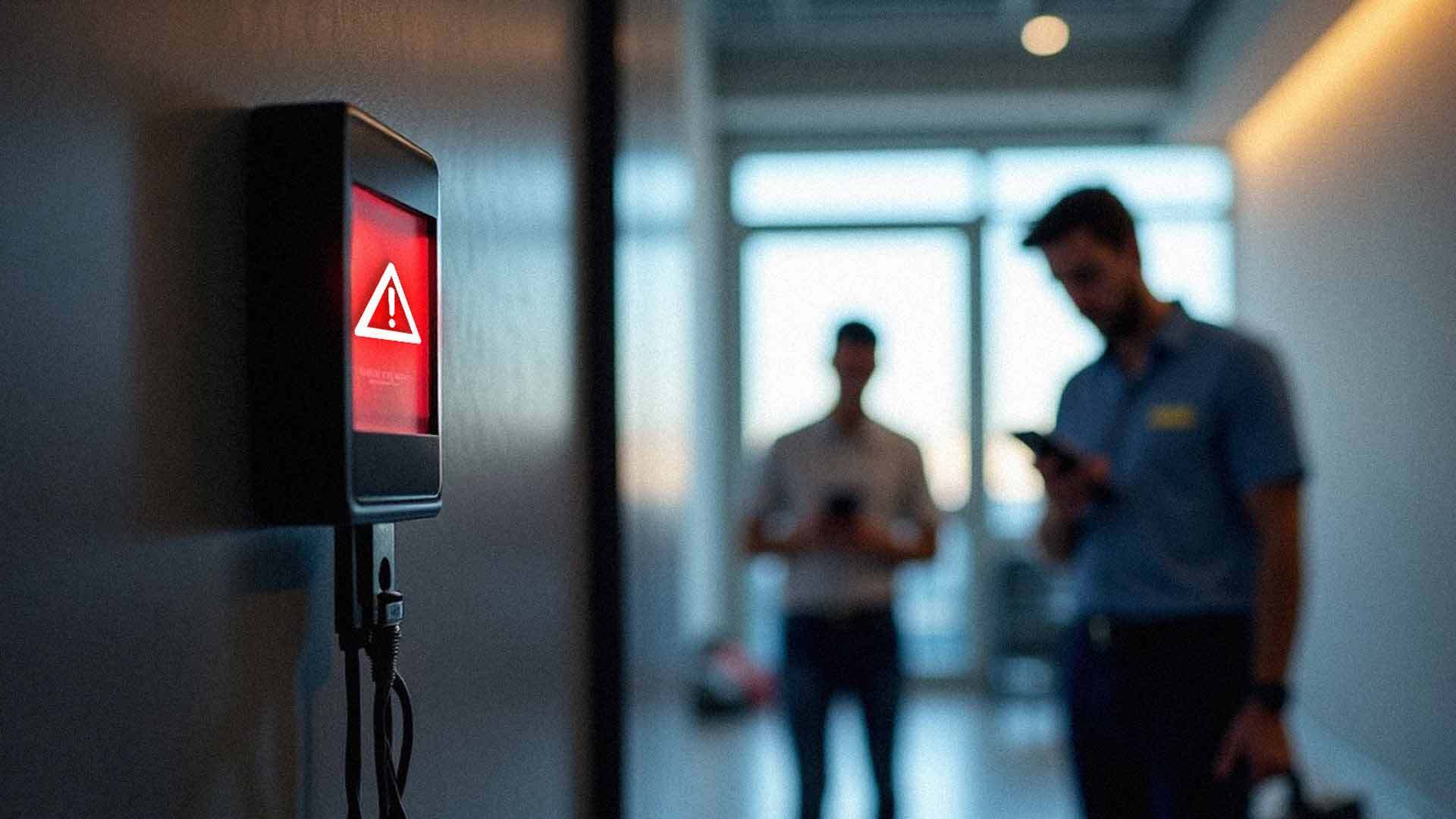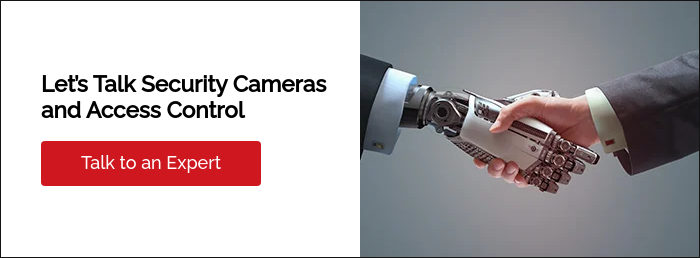Why You Might Regret Buying an Access Control System Without Local Support
July 3rd, 2025 | 7 min. read

The convenience of buying technology online is hard to ignore. In just a few clicks, you can order a cloud-based access control system from a national brand, schedule delivery, and feel like your building’s security is handled.
But then reality hits.
The system arrives. It looks sleek. However, you now need to find someone to install it. You run into wiring issues.
One of the door locks doesn’t function properly. And when you finally call for help, you find yourself on hold, being bounced between departments, with no technician in sight.
If that sounds frustrating, you’re not alone. At AIS, we’ve worked with dozens of businesses that began their access control journey with a national or online-only vendor and ultimately called us after things went awry.
The problem wasn’t always the hardware. It was the lack of local support, the kind that shows up when you need it most.
If you're considering access control for your building or facility, here’s why working with a local provider matters more than you might think.
The Appeal of Buying from National or Online Vendors
Let’s start with the obvious: buying from a large online or national vendor can seem like the easiest path. Prices may appear lower. The product pages promise fast installation. Everything looks plug-and-play.
You might think, "We don’t need hand-holding. We can figure it out." And for some companies, that might be true, until something goes wrong.
What many buyers don't realize is that the cost of missing support can far outweigh any savings gained from the initial purchase.
The fine print doesn’t always clearly indicate who is responsible for installation, troubleshooting, or system maintenance. In many cases, it’s not them.
And when you have to scramble to find a local technician after the fact, you’ll wish you had gone a different route from the beginning.
Five Problems That Happen Without Local Support (and Why They Matter)
We’re not here to scare you. However, we are here to be honest about what happens when businesses take the “buy now, figure it out later” approach with something as critical as building access.
1. Installation Isn’t as Simple as It Looks
Installing an access control system isn’t like plugging in a new printer. You need to run power and data cables. You must install door hardware that is suitable for commercial-grade doors with steel frames. You’ll need to configure the software, connect it to your network, and ensure everything complies with fire and safety codes.
Most national or online vendors don’t provide installation, or they outsource it to third-party techs with no connection to your business. That can delay the project or lead to poor-quality work.
When you work with a local provider, they often handle everything in-house (from the site walk-through to the final test). If something’s not right, you have one number to call and a team that knows your building.
2. Troubleshooting Is Slower and Less Reliable
Access control systems control your doors, your security, and in many cases, your ability to operate. If something goes wrong (like a door not unlocking, a badge scanner failing, or software going offline), it’s not just an inconvenience. It can disrupt your entire day.
Remote support teams, especially those based out of state or overseas, may not fully understand your setup. And they definitely can’t be on-site quickly. This leads to more extended downtimes and increased frustration.
Local support teams can typically dispatch a technician the same day or the next day. That’s not a luxury—it’s a necessity when your team can’t get into the building.
3. System Integrations Become a Headache
Most modern access control systems are designed to integrate with other building technologies, like security cameras, alarms, and HR software. However, setting up those integrations is often not as simple as flipping a switch.
Without a local technician, you may be left to figure out connections and configurations on your own. Worse, if something breaks during an update or API change, your national vendor might say, “That’s outside our scope.”
Local providers can build your system with integration in mind and ensure those connections remain functional over time. They’re more familiar with the brands and infrastructure common in your region, which means fewer compatibility issues.
4. No Preventive Maintenance or Regular Checkups
Access control systems aren’t something you install once and forget. They need firmware updates, periodic audits, and sometimes hardware replacement. Without ongoing maintenance, your system may become outdated, or worse, vulnerable to security risks.
National vendors often operate on a break/fix model: they help when something fails, but they’re not involved in keeping things running smoothly in the first place.
By contrast, local providers often offer scheduled health checks, regular updates, and audits. That kind of proactive support prevents problems before they cause disruption.
5. No Relationship Means No Accountability
This is one of the most important (and often overlooked) reasons businesses regret choosing remote providers.
If you order online or work with a national vendor, you’re likely dealing with a customer support team that doesn’t know your name, your company, or your setup. When issues arise, you're just another ticket in the system.
When you work with a local provider, you build a relationship with real people. They are familiar with your building, your team, and your system's history. And that relationship makes a difference when you're facing a critical issue or planning future upgrades.
Local teams are more invested in your success because their reputation is built on it. They work where you work. And if they don’t deliver, they know you can walk across the street and tell someone.
Real-World Scenarios Where Local Support Made the Difference
This might all sound hypothetical, but we’ve seen real businesses struggle without local support, and others thrive because they had it.
For example, one Las Vegas retail store purchased a three-door access control system online. The vendor shipped the equipment and offered a remote install guide. The store owner hired a general electrician to handle the installation.
Two days before a grand reopening, the system failed to unlock the front door. The online vendor couldn't help until the following week. AIS got the call and had a technician on-site that same day. Problem solved in under two hours.
In another case, a small healthcare clinic in Southern California had ongoing issues with credential syncing after a software update. Their system stopped recognizing mobile credentials, locking out both staff and patients.
Their out-of-state vendor couldn’t replicate the issue and eventually stopped responding. A local provider (yes, us again) stepped in, resolved the software conflict, and got them back online.
These are not rare stories. They happen every week, and they all point to the same truth: support is just as important as hardware.
The Value of Local Support Over Time
When you work with a local access control provider, you’re not just paying for the initial install. You’re investing in peace of mind and operational continuity.
Local support means:
- Faster installs and repairs
- Better system design for your specific building
- Personalized training and onboarding
- Scalable service as your team or space grows
It’s about having a partner who grows with you, not just a vendor who disappears once the invoice is paid.
What to Ask Before Choosing a Provider
If you’re currently shopping for access control systems, here are a few questions to ask:
- Who will install the system? Are they based locally?
- How quickly can you respond to emergencies or service calls?
- Do you offer on-site support or only remote troubleshooting?
- Can you help integrate access control with cameras, alarms, or HR tools?
- What does ongoing support look like beyond the first year?
These questions can help you distinguish between providers who are genuinely invested in your long-term success and those who are primarily interested in selling you gear.
Why AIS Believes Local Support Isn’t Optional
At AIS, we believe that access control should never be a “set it and forget it” solution. Whether you're a small office in Summerlin or a multi-site business in San Diego, you need reliable support from people who understand your space and your priorities.
Our team handles:
- Site assessments and system design
- Professional installation and training
- Ongoing support, maintenance, and updates
- Emergency service when you need it most
We’ve seen what happens when support is treated as an afterthought. That’s why we’ve built our reputation on being there when it matters, right here in your community.
Final Thoughts: Local Access Control Support Isn’t a Luxury—It’s a Lifeline
An access control system is more than just door locks and software. It’s part of how your business runs, how your people stay safe, and how your building functions every single day.
If that system goes down and no one’s around to help, it’s not just inconvenient. It’s costly. Sometimes, it is even dangerous.
That’s why we believe local support isn’t just “nice to have,” it’s essential.
Thinking about installing or upgrading your access control system? Talk to AIS to schedule a site visit or learn how local support can save you time, money, and stress.
A true southerner from Atlanta, Georgia, Marissa has always had a strong passion for writing and storytelling. She moved out west in 2018 where she became an expert on all things business technology-related as the Content Producer at AIS. Coupled with her knowledge of SEO best practices, she's been integral in catapulting AIS to the digital forefront of the industry. In her free time, she enjoys sipping wine and hanging out with her rescue-dog, WIllow. Basically, she loves wine and dogs, but not whiny dogs.



